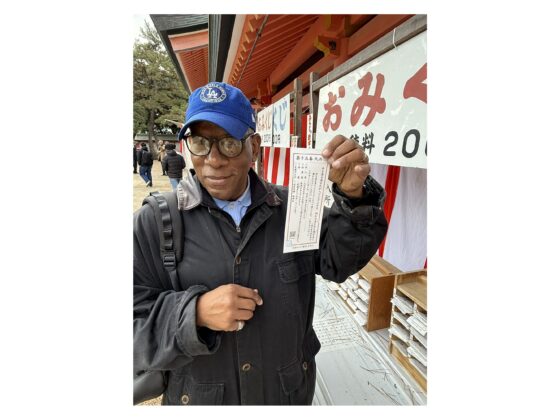With businesses disrupted by the ongoing coronavirus pandemic and the job market in a state of flux as the global economy navigates a recession, several of our Darden Alumni Career Services coaches share what they are seeing currently in the job landscape, and what trends they are noticing since the start of the pandemic.
 The job market continues to feel very mixed now. The shock reaction last spring resulted in furloughs and layoffs, but we saw those primarily in the in the hardest hit industries, like travel services and hospitality. Jobs in those industries are still hardest to find. There are some big winners in this economy, namely online retail and health care. I’ve had three clients land at Amazon since April and others get decent offers in certain sectors of health care. We are seeing many clients now preparing for interviews with Amazon, so I want to offer a shout out to the wonderful alumni already working at Amazon for graciously networking and supporting those seeking jobs there. Health care isn’t hiring as much, but there are also fewer layoffs. Length of search for those out of work continues to be six months on average in moderately healthy industries, and indefinitely longer in weak industries. I continue to see tremendous uncertainty because now companies and corporations are facing recessionary headwinds, and many are redesigning their org charts, trimming payrolls and cutting staff at all levels. Some functions continue to offer job opportunities, regardless of industry, like sales, sales management, business development and operations. My clients are facing pay cuts, promotions in title or responsibility without an increase in compensation, and offers with non-negotiable, softer compensation. The bright spot is that it’s a good time to network. Most people seem to want to share experiences and offer help where they can. The Darden network is strong!
The job market continues to feel very mixed now. The shock reaction last spring resulted in furloughs and layoffs, but we saw those primarily in the in the hardest hit industries, like travel services and hospitality. Jobs in those industries are still hardest to find. There are some big winners in this economy, namely online retail and health care. I’ve had three clients land at Amazon since April and others get decent offers in certain sectors of health care. We are seeing many clients now preparing for interviews with Amazon, so I want to offer a shout out to the wonderful alumni already working at Amazon for graciously networking and supporting those seeking jobs there. Health care isn’t hiring as much, but there are also fewer layoffs. Length of search for those out of work continues to be six months on average in moderately healthy industries, and indefinitely longer in weak industries. I continue to see tremendous uncertainty because now companies and corporations are facing recessionary headwinds, and many are redesigning their org charts, trimming payrolls and cutting staff at all levels. Some functions continue to offer job opportunities, regardless of industry, like sales, sales management, business development and operations. My clients are facing pay cuts, promotions in title or responsibility without an increase in compensation, and offers with non-negotiable, softer compensation. The bright spot is that it’s a good time to network. Most people seem to want to share experiences and offer help where they can. The Darden network is strong!
 The Singapore market seems healthier, thanks to strong government-intervention measures and a wider number of industries, namely tech and pharma, holding things together. However, with the number of local candidates currently looking for new roles, it may be a tough time for expatriate candidates to secure employment passes. Minimum salary requirements for those visas were just raised, effective 1 September.
The Singapore market seems healthier, thanks to strong government-intervention measures and a wider number of industries, namely tech and pharma, holding things together. However, with the number of local candidates currently looking for new roles, it may be a tough time for expatriate candidates to secure employment passes. Minimum salary requirements for those visas were just raised, effective 1 September.
I understand the job market in India has been quite challenging. It may also be 6-12 months before things resume a healthier pace there as well.
And in China, it feels as though the economy has been regaining a more normal pace. While I do not have hard tangible data, it seems as though the job market is healthier there, where spending has resumed and businesses are pursuing growth initiatives.
While it may not be a great time to be looking for a new role, I would say that this is the perfect time to build a strategy and do the necessary work to be prepared for when the job market picks up again.

I’m seeing increased competitiveness for jobs in growth industries as well as a shift in mindset about how work gets done. While some sectors are downsizing (e.g., hospitality, transportation, real estate), others are hiring (e.g., consumer packaged goods, tech, online retail, health care). For companies that are hiring, many positions are highly competitive (especially in tech), with reports that hiring managers are closing job applications early because they do not have the resources to review all the applications. This makes effective networking in target companies even more critical for job applicants. Another evolving trend is the mindset shift on ways of working, ways of collaborating, views on centralized corporate headquarters and openness to employees working remotely. Outdoor retailer REI recently announced it will be putting its new custom-built HQ campus in Bellevue, Washington, up for sale before it even moves in due to changes in how its staff is working today. It will be interesting to see how this trend evolves and whether it is a short-term reaction or a longer term shift.
In speaking with Darden alums, many are finding success in today’s competitive market with networking approaches, such as leveraging their undergraduate and Darden alumni networks, reconnecting with former colleagues, attending webinars and following up to connect with the webinar presenters, sharing articles on their targeted field on LinkedIn to increase profile views, and expressing flexibility on location and working remotely.
The job  market right now is surprisingly active. Sectors like tech, tech-enabled consumer businesses, food and beverage, and health care are rocking and rolling. After a crickets-quiet Q2, this summer we’ve seen candidates and employers come out of hibernation. People have adjusted to the virtual ways of hiring and onboarding and are ready to get on with it. To boot, the COVID environment seems to have kept everyone from taking the usual July/August vacation, so people actually seem to be interviewing and networking during what is typically a slow season. I am anticipating Q4 of 2020 to be quiet due to lingering COVID uncertainty, the election and the seasonal slowdown of the holidays, but if the stock market is any indicator, investors seem to predict that in 2021 we’ll be back on track!
market right now is surprisingly active. Sectors like tech, tech-enabled consumer businesses, food and beverage, and health care are rocking and rolling. After a crickets-quiet Q2, this summer we’ve seen candidates and employers come out of hibernation. People have adjusted to the virtual ways of hiring and onboarding and are ready to get on with it. To boot, the COVID environment seems to have kept everyone from taking the usual July/August vacation, so people actually seem to be interviewing and networking during what is typically a slow season. I am anticipating Q4 of 2020 to be quiet due to lingering COVID uncertainty, the election and the seasonal slowdown of the holidays, but if the stock market is any indicator, investors seem to predict that in 2021 we’ll be back on track!





